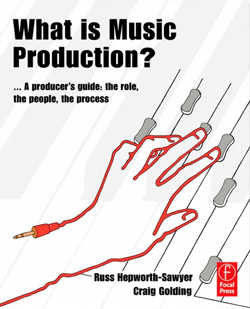
Your role?
The producer’s role in the session can, as ever, be one of many things (as we will discuss later in this chapter).
The role has been described in a number of ways before but we tend to think of a chameleon and the way in which it changes its colors in order to blend in with its surroundings.
Likewise the producer’s role in a session is one that will need to change and adapt in reaction to what is required in order to achieve a successful recording.
The need for adaptability has been a common thread in conversations we have had with various producers while writing this book, and it is obvious that different individuals work in differing ways depending on their background, skills and experience.
However, there are a number of generic points that seem pertinent to remember when considering the producer’s role within the recording session.
Firstly, the need to maintain an objective perspective in the studio is of paramount importance. It is the producer’s job not to become too bogged down in the fine detail or emotion but to maintain the vision of the project as a whole.
It is the producer’s responsibility to know when there is some mileage in an idea or when time is possibly being wasted. Secondly, the artist is the most important person in the room.
This is hopefully common sense to most that will read this; however, it is worth acknowledging that once wrapped up in the moment of a session it can become easy to forget the reason why you are there and what it is you are trying to achieve and why.
It is the artist’s and musician’s session. They are there to perform and record; certainly you will have your views and opinions (that is why you have been hired, after all), but your interaction should always be for the good of the artist.
Producer, arranger, and engineer Haydn Bendell describes the role as one of “a service provider” where the artist/musician should always be made to feel as comfortable and safe as possible.
When discussing the importance of the artist, he gives the example of two records he may produce using exactly the same studio, people, equipment, and techniques.
Yet while one record could go on to win various awards, another could be far less successful.
The variable factor, the artist, is surely the most important cog in the machine. An idea worth considering when examining the way in which we all work, perhaps?
